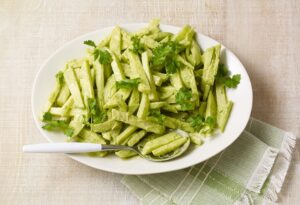Table of Contents
Chayote Squash: A Nutritional Powerhouse with Numerous Health Benefits
Chayote squash, a versatile and nutritious vegetable, deserves a spot in your kitchen. Whether consumed raw or cooked, this mild-flavored food offers numerous health benefits, from boosting liver function to promoting healthy digestion. In this article, we will explore the unique qualities of chayote squash, its impressive health benefits, and how you can incorporate it into your diet for optimal wellness.
What Is Chayote?
Chayote (Sechium edule), also known as vegetable pear, mirliton squash, or chocho, belongs to the gourd family (Cucurbitaceae). This pear-shaped, green vegetable is commonly mistaken for a squash, but it’s technically a fruit. The mild, slightly sweet flavor and crisp texture of chayote make it an excellent ingredient for various dishes. Its taste is often compared to a mix between a cucumber and jicama, making it a refreshing addition to salads or stir-fries.
Chayote is cultivated primarily in Latin America but can be found year-round in grocery stores, with its peak season during fall. While the flesh of the chayote is commonly used in cooking, the entire plant is edible, including the leaves, stems, roots, and seeds. In addition to culinary uses, chayote leaves can be brewed into medicinal teas known for their therapeutic properties.
Nutrition Facts
If you’re new to chayote, you may wonder about its nutritional content. One cup of chayote (about 132 grams) contains:
- 25 calories
- 1.1 grams of protein
- 0 grams of fat
- 6 grams of carbohydrates
- 2.2 grams of fiber
- 123 mcg of folate (31% of daily value)
- 10.2 mg of vitamin C (17% of daily value)
- 165 mg of potassium (5% of daily value)
- 5.4 mcg of vitamin K (7% of daily value)
- 0.6 mg of niacin (3% of daily value)
Chayote is low in calories and packed with vital nutrients like folate, vitamin C, potassium, and fiber, making it an excellent food for promoting overall health. You can learn more about the benefits of folate-rich foods from reputable sources like Medical News Today.

Chayote Squash: A Nutritional Powerhouse
Health Benefits of Chayote Squash
1. Natural Antimicrobial Properties
Chayote’s antimicrobial properties have garnered attention in the medical community, as its extracts from leaves, stems, and seeds have been found to fight off antibiotic-resistant bacteria, including methicillin-resistant staphylococci bacteria. According to a study published in Microbial Ecology in Health and Disease, the antimicrobial compounds in chayote may have future clinical applications as a natural solution to combat bacterial infections.
2. Rich Source of Folate
Folate is a crucial nutrient for DNA formation and cellular division, making chayote an essential food, especially for pregnant women. A lack of folate can lead to birth defects such as neural tube defects. Additionally, folate deficiency can cause fatigue, poor digestion, and weakened immune function.
To avoid these potential health issues, incorporating folate-rich foods like chayote into your diet is essential. Discover more about the importance of folate during pregnancy from March of Dimes.
3. Digestive Health Support
Chayote is high in fiber, a nutrient that promotes regular bowel movements and encourages the growth of healthy gut bacteria. Fiber also acts as a prebiotic, feeding the beneficial bacteria in your digestive tract. Eating fiber-rich foods like chayote may help prevent constipation, reduce the risk of digestive disorders, and even improve mental health through the gut-brain connection.
4. Boosts Liver Health
Several studies highlight the positive impact chayote can have on liver health. A 2014 study published in the Journal of Agricultural and Food Chemistry found that chayote extracts could reduce cholesterol levels and help prevent fatty liver disease. Additional animal studies suggest that chayote may reduce fat accumulation in the liver, further supporting its potential role in managing obesity and improving liver function.
5. Potential Cancer-Fighting Properties
Like many fruits and vegetables, chayote contains compounds that may lower cancer risk. Preliminary research shows that chayote’s phytochemicals could inhibit the progression of leukemia and cervical cancer cells. While more clinical studies are needed, incorporating a variety of fruits and vegetables, including chayote, into your diet may reduce the likelihood of cancer development.
How to Eat and Prepare Chayote
Chayote is a versatile ingredient that can be eaten raw or cooked. Here are a few ways to prepare it:
- Raw: Add thinly sliced chayote to salads, salsas, or ceviches for a crisp texture.
- Cooked: Steam, sauté, or boil chayote to soften its texture. It pairs well with butter, olive oil, salt, and pepper.
- Baked: Roast chayote in the oven with your favorite seasonings for a flavorful side dish.
- Pickled: Preserve chayote in a vinegar brine for a tangy addition to meals.
If you’re looking for recipe inspiration, try a refreshing Chayote Salad or hearty Braised Chicken with Chayote. You’ll be amazed at the flavor and texture this unique squash can bring to your dishes.
Potential Risks and Side Effects
While chayote offers numerous health benefits, it’s important to note that some people may experience allergic reactions. If you notice any signs of an allergy, such as itching, swelling, or difficulty breathing, seek medical attention immediately.
Final Thoughts
Chayote is a nutritious and versatile fruit that is commonly used in cooking, though it is technically a fruit. Rich in fiber, folate, vitamin C, and potassium, it supports digestion, liver health, and even cancer prevention. If you’re looking to diversify your diet with healthy, nutrient-packed foods, chayote is a fantastic choice. Don’t be afraid to experiment with different cooking methods, whether raw, boiled, or baked—chayote will bring a new level of flavor and health benefits to your meals.